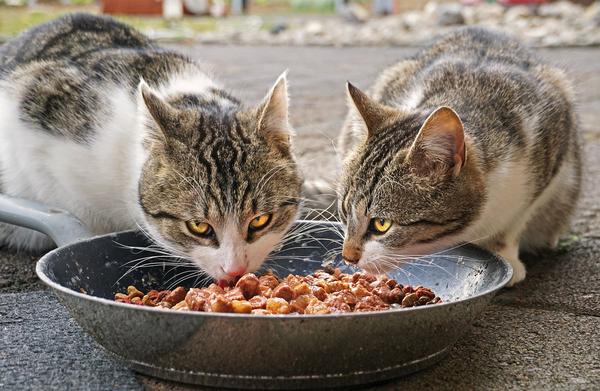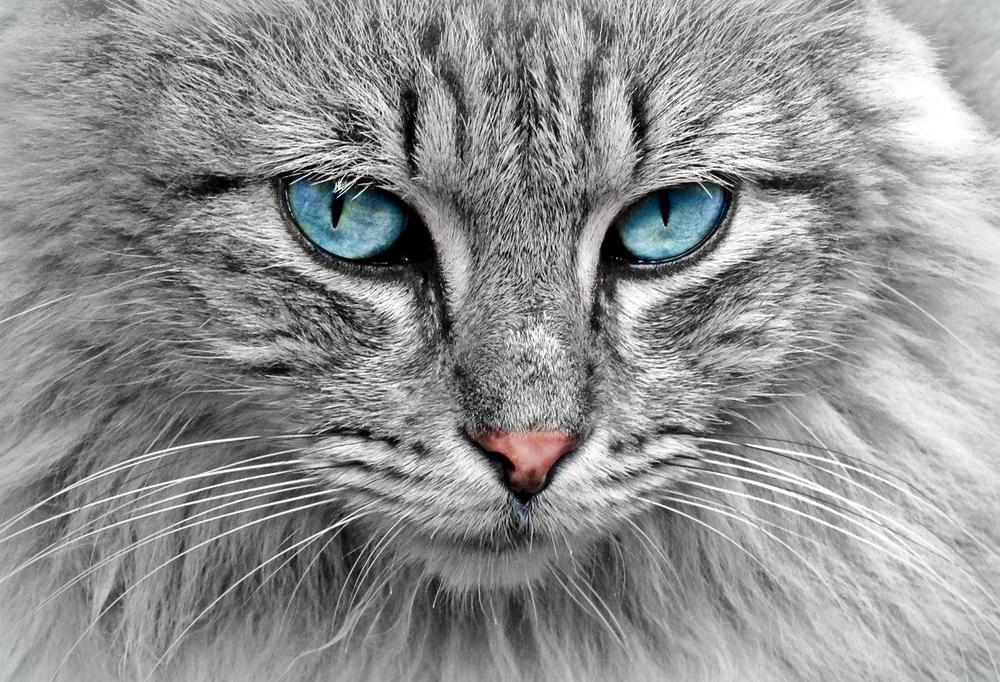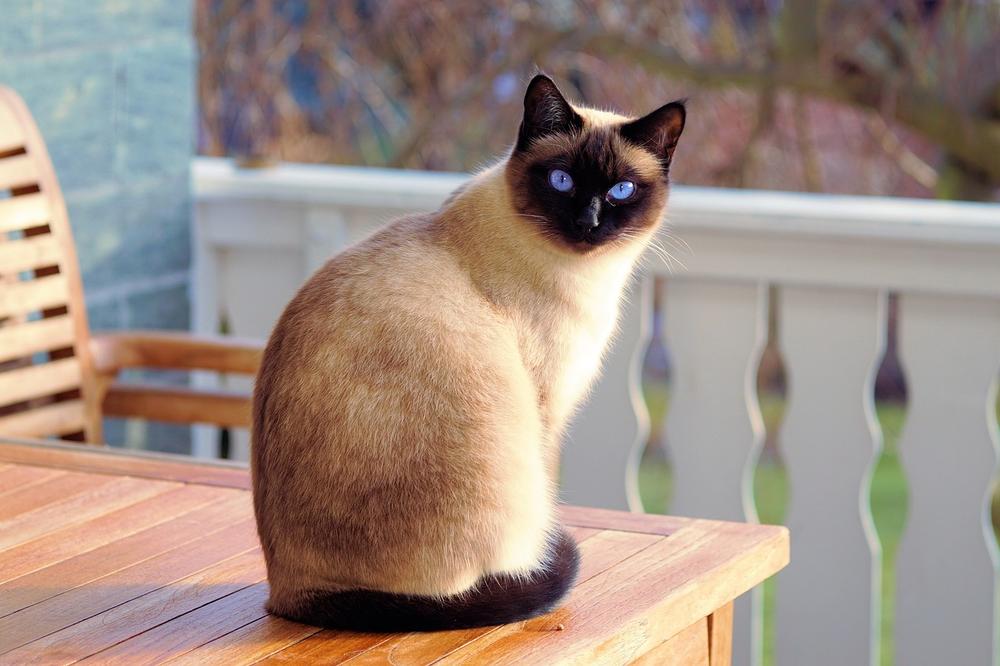Do Cats Eat Their Own Poop? Is It Normal Or Should You WORRY?

Ever caught your feline friend in the act?
Whether you're a seasoned cat owner or a newbie, I get it.
The concern for the health and well-being of our precious furballs can sometimes feel overwhelming, can't it?
The thought that they might...you know...dine on their own leftovers can leave us scratching our heads.
But fear not!
Let's dive into the fascinating world of our feline friends and unravel the mystery together.
So, are you ready? 😺
Let's embark on this curious cat quest!
Unraveling Cat Coprophagia: The Mystery Behind Fecal Consumption
Cats eating their own poop, known as coprophagia, may seem gross to you, but it's actually pretty normal for them. You might be wondering why they do it.
Well, one reason could be that by eating their feces, cats can conceal their scent from potential predators.
They know that the smell of poop can give them away.
But there's more to cat coprophagia:
- Lack of nutrients could be a factor. If a cat isn't getting all the necessary nutrients from its diet, it might resort to eating its own poop to make up for those deficiencies.
- Stress and anxiety can also contribute to this behavior. Just like some humans eat when they're feeling anxious or bored, cats may turn to poop for comfort during stressful times.
- Medical conditions, like parasites or issues with absorbing nutrients, can lead cats to eat their waste. If your cat does this excessively, it's important to see a vet to check for any underlying health problems.
While coprophagia is generally seen as normal for cats, you have to keep an eye on excessive or unusual poop consumption and seek professional help if needed.
Main points I'll expand upon further down this article:
- Cats may eat their own poop due to various behavioral reasons.
- Coprophagia in kittens can be influenced by their mother's behavior.
- Survival instincts and the need to hide scent play a role in coprophagia.
- Adult cats may eat poop out of curiosity, stress, anxiety, or boredom.
- Regular litter box cleaning and parasite management are crucial for prevention.
- Ingesting poop can expose pets and owners to harmful bacteria and parasites.
- Good hygiene practices, such as proper handwashing, are essential.
- Coprophagia can indicate digestive problems, nutrient deficiencies, or poor diets.
- Medical conditions can lead to excessive hunger and coprophagia in cats.
- Strategies for preventing coprophagia include diet adjustments, exercise, and behavioral techniques.
And now, let's delve deeper into the reasons behind why some cats engage in coprophagia and explore how behavioral and environmental factors contribute to this behavior.
As a cat owner, I have found that understanding these underlying factors can help us effectively address and prevent this somewhat perplexing habit...
Behavioral and Environmental Factors Contributing to Coprophagia in Cats
To address coprophagia in cats, consider the following factors:
- Provide alternative outlets for play and stimulation.
- Increase activity levels to reduce boredom.
- Address fear or anxiety through environmental enrichment.
- Ensure proper litter box hygiene and accessibility.
- Monitor food intake and address extreme hunger.
- Minimize stressors in your cat's environment.
- Consider pica as a potential cause and consult with a veterinarian.
- Keep tempting items out of reach.
- Use deterrents like bitter sprays if necessary.
- Offer a well-balanced diet to meet nutritional needs.
- Seek professional help if behavioral issues persist.
You can prevent cats from eating feces and improve the living conditions for you and your cat by comprehending these factors and implementing suitable actions. 😺
In addition to addressing the various factors contributing to coprophagia in cats, I also wanted to share an incredibly helpful resource I wrote about.
If you're curious to learn more about whether purring is involuntary or voluntary in cats, I highly recommend checking out Is Purring Involuntary in Cats.
It's a fascinating exploration that delves into this intriguing aspect of feline behavior.
You'll find answers to your questions and gain a deeper understanding of our furry friends.
Health Risks Associated with Cats Eating Their Own Poop
Eating poop is nasty, both for cats and humans. 😖
It's not just disgusting, but also a danger to your furry friend.
Here's what you need to know:
- When cats eat feces that contain leftover medication or parasites, they can get infected and face health problems.
- These intestinal parasites push cats into the disgusting habit of consuming their own poop. This puts both pets and owners at risk of getting exposed to medication remnants, E. coli, Salmonella bacteria, and more parasites.
- To avoid sickness related to this poop-eating behavior, make sure you clean the litter box regularly, and deworm your cat as advised by the vet.
- If you're pregnant, take extra care to avoid any contact with cat feces to protect your growing baby from toxoplasmosis, which can cause harm.
- Practice good hygiene and always wash your hands properly after dealing with the litter box. This reduces the chances of spreading potential pathogens.
- While gobbling up poop doesn't necessarily harm a cat's health, it depends on why they're doing it. It can lead to illnesses like Salmonella or E. coli, along with tummy troubles.
- If your cat has this gross habit, try preventing them from licking you to minimize any chance of passing on something harmful. Keep an eye out for changes in their behavior and consult the vet if needed.
If you follow these guidelines, you can safeguard your cat's well-being and steer clear of coprophagia-related risks.
Poop goes in the litter box, not in your kitty's tummy!
Now that we've explored the health risks associated with cats eating their own poop, let's delve deeper into the underlying causes of this concerning behavior.
You might be surprised by some of the reasons why your furry friend may engage in coprophagia...
Nutritional Deficiencies and Coprophagia in Cats
Coprophagia is when cats eat their own poop, and it's a sign that something might not be right.
It could mean they have a nutritional deficiency.
Can you believe it?
They might actually be eating poop to get the nutrients they need from their current diet.
But wait, there's more...
Digestive problems, enzyme deficiencies, and inadequate nutrition can also contribute to this behavior in cats.
So if your cat starts chowing down on feces, you better pay attention.

Here's something to PLEASE bear in mind:
Kittens might eat poop to boost their immunity and promote good gut bacteria, but adult cats don't typically engage in this habit.
So if your grown-up kitty decides to make a meal out of their poop, you should take it as a warning sign.
It's time for action!
Make sure your cat is getting a balanced diet with all the necessary nutrients.
Experiment with different commercial cat foods until you find one that works best for them.
And don't forget to consult your vet.
They can help rule out any internal parasite issues or other health concerns.
A nutritious and well-balanced diet is the key to having a healthier, poop-free cat.
Medical Conditions that may Cause Cats to Eat Their Own Poop
Gastrointestinal disorders and coprophagia in cats
If your cat starts eating their own poop, you might wonder what's going on.
One possible explanation is gastrointestinal disorders like inflammatory bowel disease (IBD).
These disorders can lead to something called coprophagia, which means eating poop.
It sounds gross, I know.
But cats do it because they are trying to make up for poor nutrient absorption caused by their digestive problems.
Look out for underlying medical conditions
If your cat eats poop, it could be a sign of an underlying medical condition that is causing them to be excessively hungry. This could include things like vitamin or mineral deficiencies, parasites, malnutrition, diabetes, thyroid disease, or other gastrointestinal issues.
It may not always mean something serious, but it's a good idea to consult a veterinarian if you notice this behavior.
Consult a vet for a thorough checkup
To figure out why your cat is eating poop, you should take them to the vet.
The vet will give them a thorough checkup and look into both medical and behavioral factors that could be contributing to this strange habit.
By being observant and seeking help from a professional, you can find out the root cause behind your cat's poop-eating and address any underlying medical issues as soon as possible.
And it gets better - there are strategies you can implement to address this behavior and prevent your cat from eating their own poop.
Keep reading to discover the steps you can take to help your furry friend overcome this habit and ensure their well-being...
How to Stop Cats from Eating Their Own Poop
If you find your cat munching on their own poop, don't panic! 😱

There are effective strategies to break this habit and keep your furball healthy. Here's a practical list of tips to stop cats from eating their own poop:
- Evaluate Their Diet: Ensure your cat is getting proper nutrition by adding supplements or shifting to a higher quality food. Nutritional deficiencies may contribute to coprophagia.
- Increase Exercise: Encourage physical activities and playtime sessions to divert your cat's attention away from poop.
- Try Deterrents: Use poop deterrents like bitter sprays, powders, or specific enzymatic additives that make poop less appealing to your cat's taste buds.
- Behavior Modification: Implement positive reinforcement techniques like offering treats or praise when your cat refrains from poop eating behaviors. Redirect their focus onto more acceptable behaviors.
- Consider Medication: In severe cases, discuss with your veterinarian the possibility of using medications aimed at curbing poop-eating habits.
- Preventative Measures: Take preventive measures such as immediate removal of poop, the use of automatic litter boxes, and keeping your cat on a leash outside to restrict access to poop.
Never punish or scold your cat for poop eating, as it can worsen anxiety.
Emphasize positive reinforcement and support as you help them overcome this habit.
And that wraps up today's article.
You've made it to the end of my blog post. Now I'd love to know your opinion—did you enjoy it? I put in a ton of effort to write detailed and helpful articles that really take up a significant chunk of my time (in a positive way). It would mean the world to me if you could click on any of the social sharing icons to spread this blog post to others. Thank you so much!
Talk soon,
-Sarah Davis